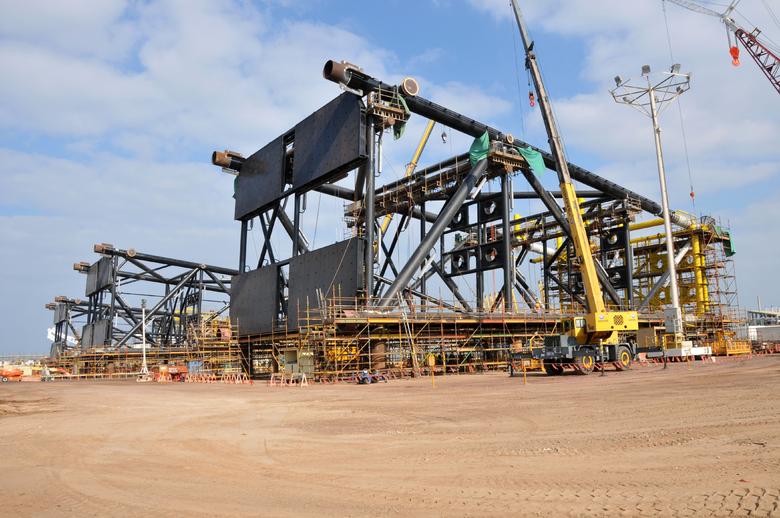
NO ONE ENVIES THE SAUDIS

FT - Even five years ago, Saudi Arabia was in an economically enviable position. A few unsettling trends were unfolding: hybrid and electric cars were becoming more common and oil companies were driving wells across the shale basins of the US. But neither green vehicles nor shale oil was price competitive with their conventional predecessors, and Brent crude, the global oil price benchmark, was over $100.
No one envies the Saudi Arabians now. Yes, the Brent price has rebounded from its of 2015-16 lows to stabilise over $50. At the Opec meeting in Vienna this week the delegates agreed to extend production curbs for another nine months.
But the long-term supply and demand dynamics for oil continue to be at best unpredictable and at worst simply bearish. This is the reason for, and the greatest threat to, Saudi efforts to reform its unbalanced economy. Saudi Arabia must be weaned off oil; yet that process, which is causing domestic tension, can only be made palatable by oil money.
When the Saudis increased oil production in 2014, they hoped that tumbling prices would drive US shale producers out of business. The price pressure had almost the opposite effect: some shale drillers went bust, but the survivors became much more efficient. Production costs have fallen, on average, by 40 per cent. Many drillers have emerged from bankruptcy with cleaner balance sheets, too. Some of the US shale players can maintain output with oil at $40. Many are comfortable at $50, as demonstrated by the recent rally in energy company bonds. The number of US shale wells has rebounded strongly.
An accelerating green vehicle industry is the single biggest threat to oil demand. Electric cars still account for less than 1 per cent of the global market but that slice is growing extremely fast. In 2016, sales grew 42 per cent. Improvement in battery technology is making electric cars more attractive by increasing their range. Battery prices are falling fast, too. By 2020, Bloomberg estimates, there will be 120 electric car models available. Every major car manufacturer will be in the market.
The possibility that oil prices could stay low or fall further makes the economic and political situation in Saudi Arabia dangerous. The country has a rapidly growing population, an economy dominated by the state, and a tradition of rich benefits for citizens. The combination is no longer sustainable as reflected in a fiscal deficit that last year hit $75bn, or one-tenth of domestic output.
The government is well aware of the problem. Mohammed bin Salman, the deputy crown prince, is leading a reform effort that combines investment in non-oil industries with cuts to domestic energy subsidies, shrinking the size of the state, and selling a stake in the state oil company. The work is proving difficult: a decision to cut benefits to civil servants was reversed last month. This is not surprising in a country where close to 70 per cent of working citizens are in the employ of the state. That the reversal came in just six months showed, however, that the government is on a short tether.
The Saudi monarchy is, for better or worse, a political cornerstone in a febrile region. It is already squarely in Isis' sights. If it weakens, the resulting power vacuum will have unpredictable consequences. An unstable oil market, by threatening reform efforts, increases these risks. The shale boom, green technology, and lower demand for oil are, on balance, facts to be celebrated. They will have political consequences, though, and the world must be ready.
-----
Earlier:




